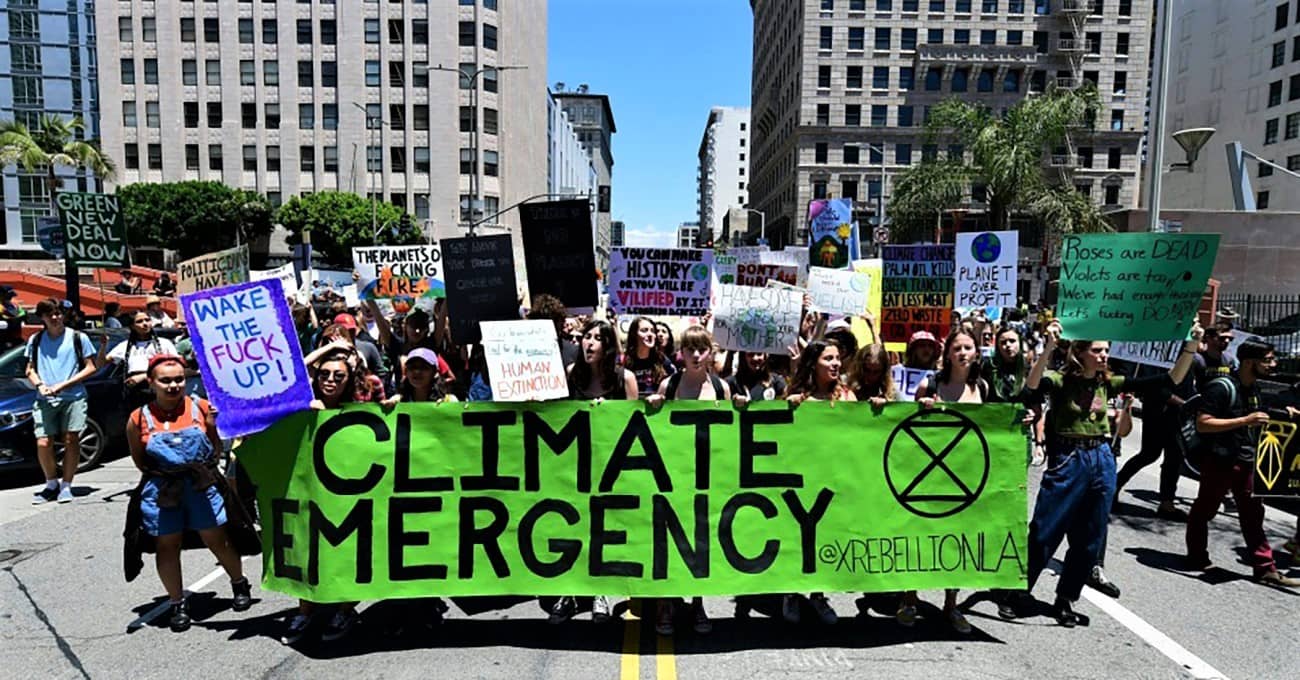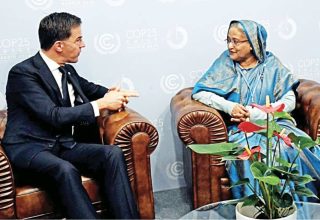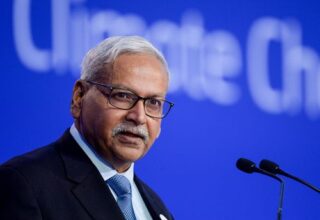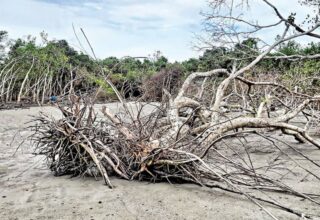
Humanity has made a “tragic, desperate mess” of the planet, said Sir David Attenborough, the 93-year-old naturalist and documentary filmmaker on announcing his new series of documentaries called “Seven Worlds, One Planet” due to be broadcast on the BBC.
He has spent a lifetime making iconic documentaries on the natural wonders of both the earth as well as the oceans over many decades. However, in the last few years, he has become alarmed by how much we humans are destroying our natural environment and has been raising his voice to make us all realise that we need to declare a planetary emergency and act to protect the environment we all live in.
There are two major parts of this planetary emergency: the first is about extinction of species and natural habitats around the world, and the second is about pollution where greenhouse gases are by far the most dangerous pollutants leading to a climate emergency which has been the rallying cry of the 16-year-old Swedish schoolgirl, Greta Thunberg, who has galvanised millions of school children around the world to come out every Friday to protest and demand action.
There is also a growing movement amongst adults called extinction rebellion—taking actions of civil disobedience in the major cities of the world, such as London, Berlin and New York, including by scientists who are usually the last to take such drastic action actively courting arrest by their actions.
The reason for this alarm on the side of species and ecosystem loss include the fires in the Amazon, loss of coral reefs in the Great Barrier Reef in Australia, loss of ice in the North Pole as well as desertification in the Sahel in Africa and the loss of over a million life-forms that are making us approach the next mass extinction of species. Just recently, there have been scientific reports on the loss of bees that are essential for pollination in many crops on which we depend for our food. Most recently, scientists have shown a drastic loss of bird species in North America.
At the same time, the increase of greenhouse gases has already resulted in a global temperature rise of over one degree centigrade and we are headed for over three degrees unless we declare a climate emergency and drastically reduce those emissions to keep global temperature rise to below at least 1.5 degrees or 2 degrees. This is still possible, but not without drastic action to transition from our existing fossil fuel-based economies to sustainable energy-based development at the global level. At the same time, the adverse impacts of human-induced climate change are already being felt around the globe and need to be adapted to.
Although these two planetary crises, one biological and the other atmospheric, are global in scale, they are reflected in a severe way in Bangladesh as well.
Being a country with a population of over 160 million people living in an area of less than 150,000 square kilometres, on three of the world’s biggest rivers, we are one of the countries most vulnerable to the adverse impacts of climate change, while also being responsible for destroying some of our most important ecosystems such as the Chakaria Sundarbans in the Chattogram region, and many of our freshwater wetlands around the country.
We are fortunate to have the world’s biggest mangrove ecosystem, the Sundarbans, which is a Unesco-declared World Heritage Site, largely located within our borders. While we have been relatively good, until now, in conserving this natural ecosystem, we are in danger of putting unbearable pressure on it due to haphazard and unplanned industrial and commercial projects being set up there in anticipation of the completion of the Padma Bridge. We still have time to prevent its destruction if we can plan, and implement, environment-friendly development and nature-based solutions in the southwest of the country as the bridge is completed.
At the same time, the rivers and open waters with their hundreds of species of fish and other creatures are also under threat due to overfishing and reduction of open water fisheries, and these need to be conserved. A successful example of how to do this has been the temporary ban on Hilsa fishing during the breeding and migration season, which has led to a restoration of their production.
Although there are many excellent examples of projects and pilots where government, NGOs and communities have come together to encourage and practice good, environment-friendly development activities that allow the people to benefit from the natural resource without destroying them, we are unfortunately fighting a losing battle as the tide is moving in the opposite direction of destroying our remaining ecosystems in the name of “development”.
It is, therefore, high time for Bangladesh to take the lead, both nationally as well as globally, to declare a planetary emergency and take necessary actions to protect our remaining ecosystems and address climate change while also making advocacy at the global level, a part of our diplomacy going forward. The Bangladesh parliament could take the lead in declaring a planetary emergency and then the government of Bangladesh could become a global leader, bringing along the climate vulnerable countries such as the Least Developed Countries (LDCs). This would require putting in place laws and regulations to protect our remaining natural ecosystems and, more importantly, getting citizens to become the main protectors of the environment, led by the people’s elected representatives. Then the government could genuinely lead other countries in this global effort.
Originally this article was published on October 23, 2019 at The Daily Star. The author Dr. Saleemul Huq is the director of the International Centre for Climate Change and Development (ICCCAD) at the Independent University, Bangladesh (IUB).
Email: saleemul.huq@icccad.net






